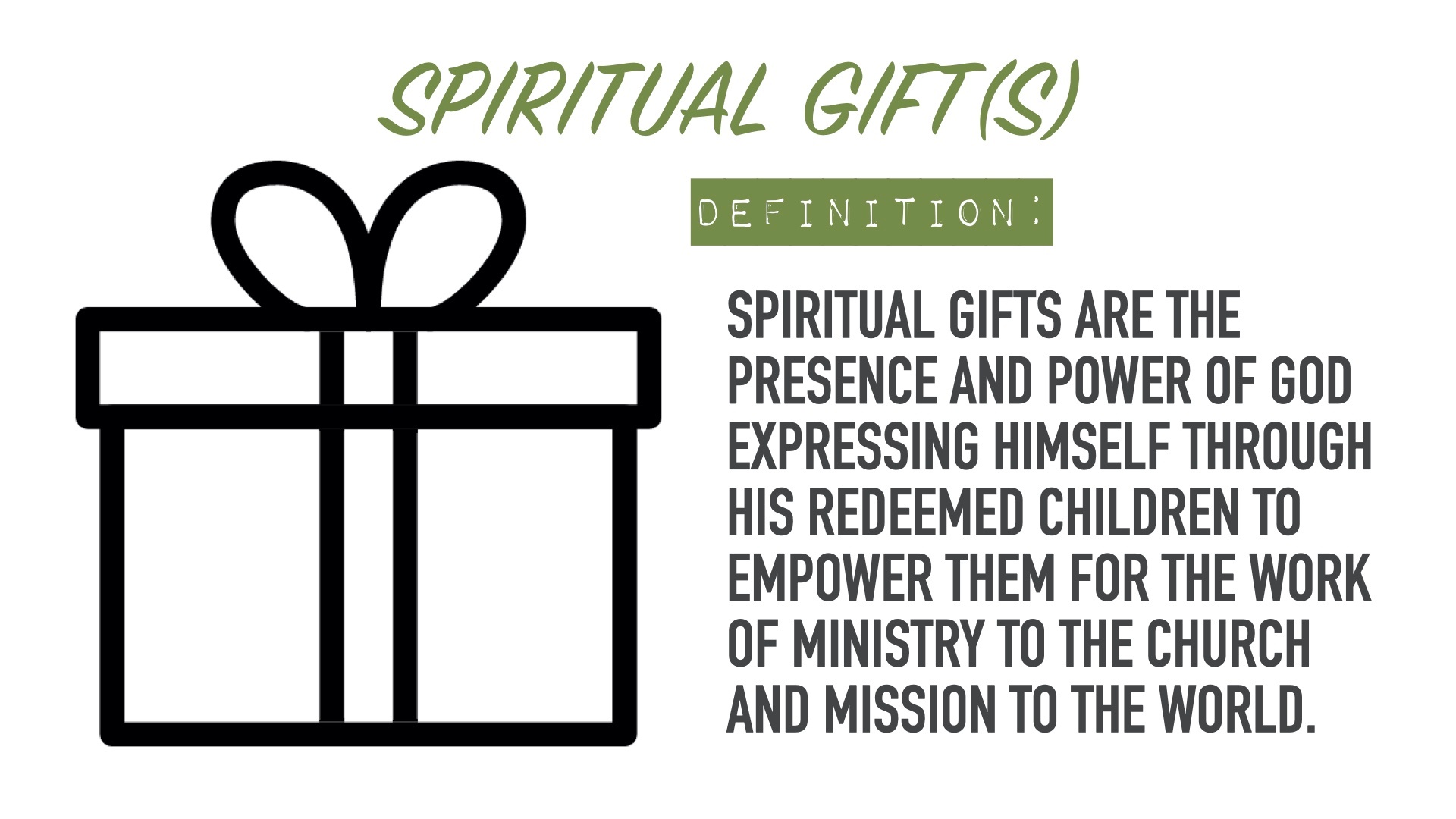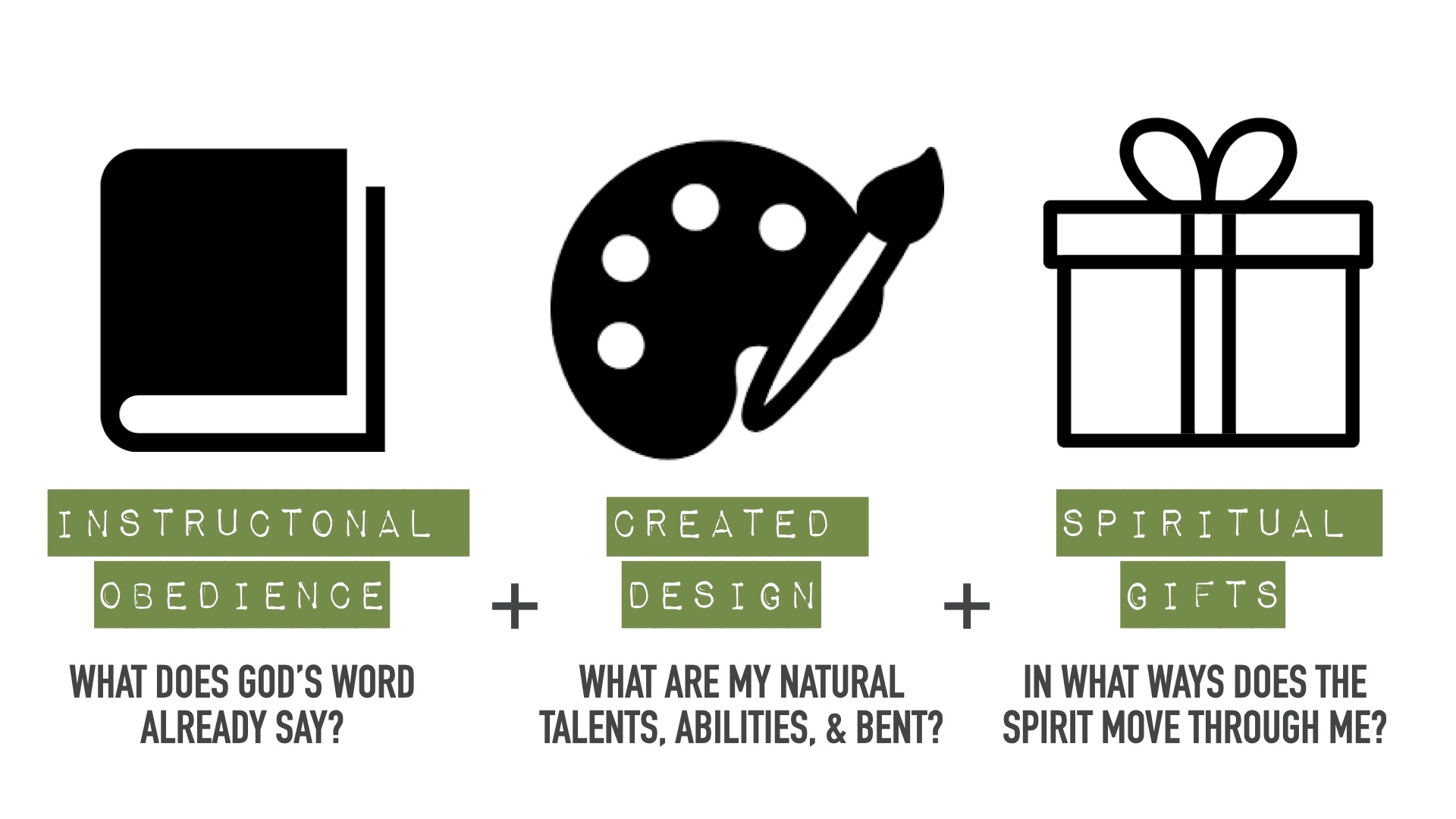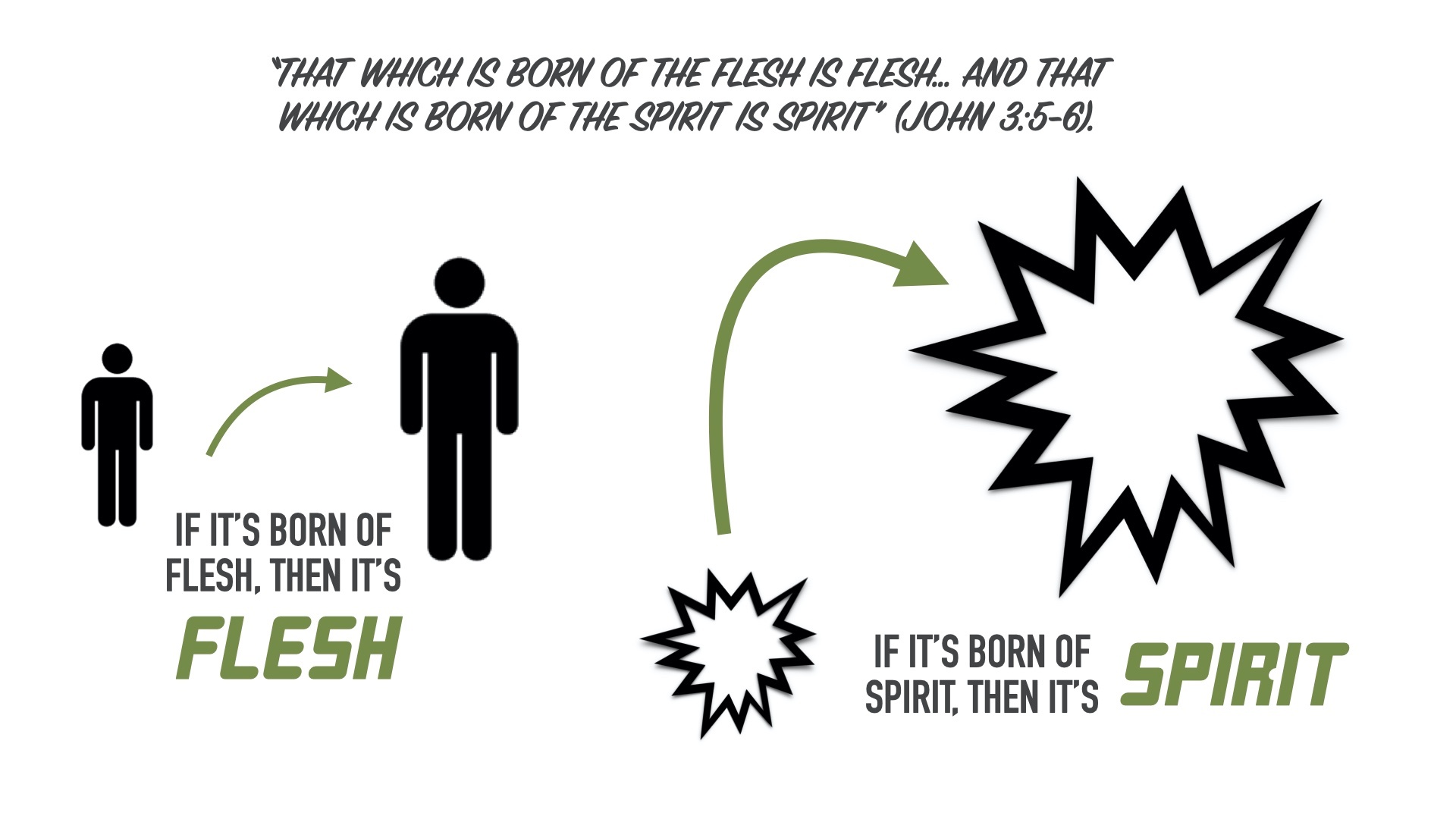The Spiritual Gift Inventory = how God moves through you to impact the world
From LifeLift Assessment D
Here’s our working definition:
Spiritual gifts are the presence and power of God expressing Himself through His redeemed children to empower them for the work of ministry to the church and mission to the world.

In the book we highlight a few important points:
#1 = Part of your bigger personal portrait
First, before moving into the area of your spiritual gifts it’s important to remember to stay aligned with Biblical truth AND embrace your created design. Your spiritual gifts are just “one part” of the unique blueprint God had in mind when He created you and fore-ordained great works that all do (see Ephesians 2:8-10).
So, we begin with INSTRUCTIONAL OBEDIENCE, acting faithfully upon the areas where God is already clear.
We also lean into the area of our “first birth,” that is our created design. This includes our natural talents, the abilities we have (including the educational pursuits, certifications, and skills we’ve developed), and the unique Proverbs 22:6 “bent” we discuss in the LifeLift book.
(Other assessments in the LifeLift toolkit, including the DISC / Color questionnaire and the Created Design Q & A as well assessments C & E— about your preferences and skills— all help paint your personal portrait here.)
Then, we move to the area of our spiritual gifts.
Notice the flow here…

Here’s another look—

#2 = The word “spiritual gifts” doesn’t appear in the way we generally think, but something bigger + better + more robust does
Paul mentions specific gifts, beginning in 1 Corinthians 12:8-10. Before he does, he offers a few introductory remarks which prove extremely revelatory (1 Corinthians 12:1-7 NKJV):
Now concerning spiritual gifts, brethren, I do not want you to be ignorant: You know that you were Gentiles, carried away to these dumb idols, however you were led. Therefore I make known to you that no one speaking by the Spirit of God calls Jesus accursed, and no one can say that Jesus is Lord except by the Holy Spirit.
There are diversities of gifts, but the same Spirit. There are differences of ministries, but the same Lord. And there are diversities of activities, but it is the same God who works all in all. But the manifestation of the Spirit is given to each one for the profit of all.
Though it all seems the same in English (some translations use the word gifts for each of the words I’ve marked in bold print above), we find four helpful words when we unpack the original Greek text.
Pneumatikons = the spirituals, the presence (1 Corinthians 12:1)
Most English translations suggest that in 12:1 Paul writes something like, “Now about spiritual gifts…”
Or, “Now about the gifts of spirit, I don’t want you to be uninformed…”
In the Greek language Paul originally used, though, he actually wrote, “Now about pneumatikons…”
Or, in English— “Now about spirituals…”
In other words, he didn’t mention gifts at all.
You might recognize the word pneuma in pneumatikons. Pneuma is the word used for both “wind” and “Spirit” in Scripture. We see it today in words such as pneumatic tools— tools powered by compressed air moving through hoses at a rapid pace.
Throughout the New Testament, Pneuma most often refers to the Holy Spirit.
Charismata = expressions of grace (1 Corinthians 12:4)
A few sentences later, in 1 Corinthians 12:4, the English translations insert “gifts” again— supplying it for a yet another Greek word. The translation in your hand probably reads something like: “Now there are diversities of gifts, but the same Spirit” (12:4, emphasis mine).
Paul’s word here is actually charismata— a completely different word, even though we often translate it the same. Earlier in our study we discussed the word charis— or “grace.” Charismata literally means “expressions of grace.” The concept fits nicely with the his encouragement in Ephesians 2:8-10 that grace (charis) saves you— not your good deeds— and that same grace also empowers you to live the destiny God has created for you, a path of good works for you to walk in. This grace expresses itself not only in the past work of Jesus on your behalf at the Cross but also in the things you do every single day.
Diareseis = appointments , placements (1 Corinthians 12:5)
Look at 12:5. The translation I’m currently reading says, “there are varieties of service” (ESV, emphasis mine).
This word misses the mark a bit, too. It emphasizes that the gifts are something we do.
While service is certainly an action, the Greek word here is diareseis. It means “appointment,” as if God Himself set you in a specific place as part of a bigger design.
Notice how this syncs with 1 Corinthians 12:18 (NIV):
In fact God has placed the parts in the body, every one of them, just as He wanted them to be.
Energematon = energies, divine power-flow (1 Corinthians 12:6)
In the next sentence, Paul tells us there are varieties of energematon (read: “energies,” or “divine power-flow") which work through us, yet it’s the same Lord that does this in each of us (12:6). That is, we don’t “do stuff” in our human power; we access God’s supernatural power-flow.
Let’s pull it together!
Let’s read through the passage again, highlighting various words (1 Corinthians 12:1,4-7 NIV):
Now about the gifts of the Spirit [pneumatikons, spirituals], brothers and sisters, I do not want you to be uninformed.
There are different kinds of gifts [charismata, grace effects], but the same Spirit [Pneuma] distributes them. There are different kinds of service [diareseis, appointments], but the same Lord. There are different kinds of working [energematon, energies, divine power-flow], but in all of them and in everyone it is the same God at work.
Here’s an image to help you review the different Greek words we commonly translate as “spiritual gifts.”

It’s important to make the distinction that the “gifts” are a way God moves supernaturally through you— and come with your “second birth,” when you are born of the Spirit. As such, they’re a means God supernaturally expresses Himself through you.

Explore spiritual gift profiles here
(Better understand you + better understand others)

























